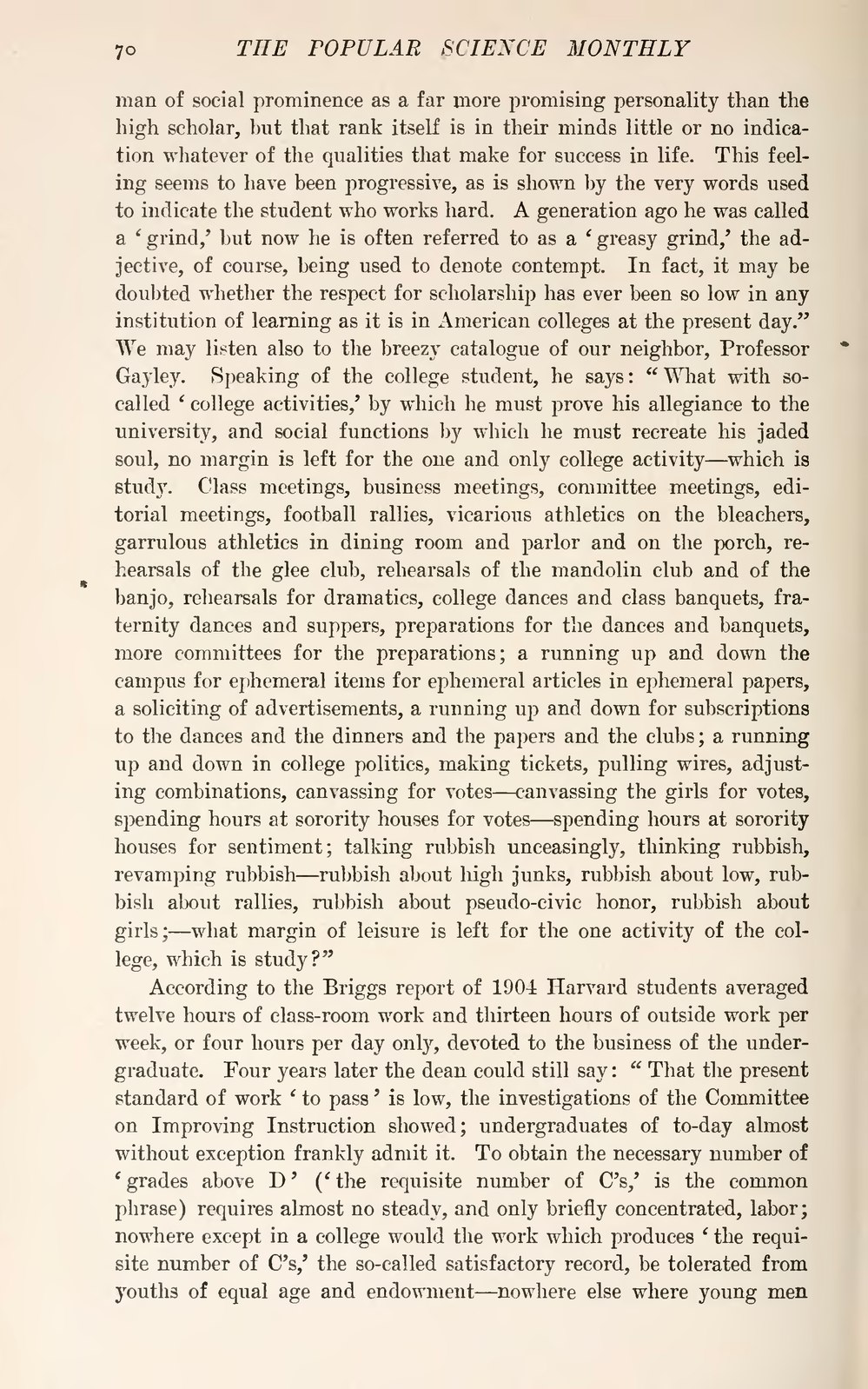man of social prominence as a far more promising personality than the high scholar, but that rank itself is in their minds little or no indication whatever of the qualities that make for success in life. This feeling seems to have been progressive, as is shown by the very words used to indicate the student who works hard. A generation ago he was called a 'grind,' but now he is often referred to as a 'greasy grind,' the adjective, of course, being used to denote contempt. In fact, it may be doubted whether the respect for scholarship has ever been so low in any institution of learning as it is in American colleges at the present day." We may listen also to the breezy catalogue of our neighbor, Professor Gayley. Speaking of the college student, he says: "What with so-called 'college activities,' by which he must prove his allegiance to the university, and social functions by which he must recreate his jaded soul, no margin is left for the one and only college activity—which is study. Class meetings, business meetings, committee meetings, editorial meetings, football rallies, vicarious athletics on the bleachers, garrulous athletics in dining room and parlor and on the porch, rehearsals of the glee club, rehearsals of the mandolin club and of the banjo, rehearsals for dramatics, college dances and class banquets, fraternity dances and suppers, preparations for the dances and banquets, more committees for the preparations; a running up and down the campus for ephemeral items for ephemeral articles in ephemeral papers, a soliciting of advertisements, a running up and down for subscriptions to the dances and the dinners and the papers and the clubs; a running up and down in college politics, making tickets, pulling wires, adjusting combinations, canvassing for votes—canvassing the girls for votes, spending hours at sorority houses for votes—spending hours at sorority houses for sentiment; talking rubbish unceasingly, thinking rubbish, revamping rubbish—rubbish about high junks, rubbish about low, rubbish about rallies, rubbish about pseudo-civic honor, rubbish about girls;—what margin of leisure is left for the one activity of the college, which is study?"
According to the Briggs report of 1904 Harvard students averaged twelve hours of class-room work and thirteen hours of outside work per week, or four hours per day only, devoted to the business of the undergraduate. Four years later the dean could still say: "That the present standard of work 'to pass' is low, the investigations of the Committee on Improving Instruction showed; undergraduates of to-day almost without exception frankly admit it. To obtain the necessary number of 'grades above D' ('the requisite number of C's,' is the common phrase) requires almost no steady, and only briefly concentrated, labor; nowhere except in a college would the work which produces 'the requisite number of C's,' the so-called satisfactory record, be tolerated from youths of equal age and endowment—nowhere else where young men
